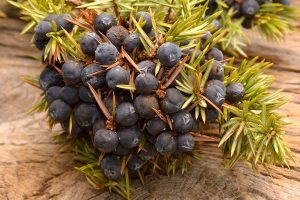For many years, roses have been seen as a symbol of love. Today there are so many things that you can do with the roses. Note that dried flowers will have the same benefits as the fresh ones. Drying the petals only allows them to last long since roses are highly perishable. We love taking care of our skin so that it can remain soft and smooth, don’t we? But sometimes we try so many products that don’t work while others have adverse side effects. Dried rose petals are the solution to all that. They are parked with various compounds that help to cleanse the skin.
Many civilizations used roses to make rose water and rose oil for rituals cuisines and medicine. The standard type of roses that made rose oil and rose water are Rosa centifolia, Rosa moschata, Rosa gallica, and Rosa Damascena. All these types can be used to make skin products. However, rosa Damascena which hails from Iran is ubiquitous
Apart from skin dried roses are used to make medicine, perfumes, and culinary purpose too. Some of these products are easy to make on your own at home as long as you have rose petals. Before drying, make sure to get leaves that have not been sprayed with any pesticides, herbicides, or chemicals. Contaminated leaves may have a negative effect on the product you are trying to make.
Dried rose petals contain fundamental properties that improve complexion and ease inflammation. Besides, it has a texture that acts as a natural dead skin remover and also includes attributes that heal scars by replenishing new skin cells. One of the best uses of dried rose petals for skin is diminishing signs of wrinkles. Other critical applications of dried rose petals for skin include:
Common uses of dried rose petals for skin
1. Gets rid of damaged skin
There is no other natural remedy that can treat damaged skin better than dried rose petals. It contains properties that remove dead skin allowing new skin to emerge. Additionally, it can heal scars on your skin, leaving it smooth and shiny as a newborn. Crush the dry rose petals together and apply to your skin every day for it to work effectively.
2. Making rose water
Rosewater has fundamental medicinal properties for the skin. It contains antioxidants that protect skin cells from any damage. Dry rose petals can be used to prepare this magical rose water. You can make it at home by crushing dry petals into a fine powder and adding water. Further rose water has anti-inflammatory properties that can ease irritation.
3. Reduces skin redness
Another important use of dry rose petals is reducing skin redness. It is mainly caused by sunburn or an underlying disease among many other causes. Applying dry and the ground rose petals acts as an inhibitor against collagenase and elastase, which cause skin redness.
4. Balances the skin pH
Dried rose petals contain antiseptic properties that help in regulating the skin ph. External aggressors such as chemicals, pollution, and temperature are the main challenges of the skin pH faces. Rose petals make the skin less sensitive and more resilient, allowing it to carry out its duties well. Taking care of your skin pH matters a lot; the acid mantle acts as a protective barrier by neutralizing alkaline-based aggressors. It also inhibits bacteria growth and also restores optimal conditions for the thriving of skin’s natural flora.
5. Treating minor skin injuries
As we saw earlier rose petal contain antiseptic properties which can kill bacteria. Also, they contain anti-inflammatory properties that calm the skin. You can apply rose water or powder to skin with minor injuries. For example, small cuts or burns.
6. Treating Eczema
Dried rose petals can to treat eczema. This is a common skin disease that affects around 30 percent of North Americans every year. Symptoms of Eczema include scaly and itchy patches of the skin. However, symptoms may vary depending on the age of a person. Dairy and nuts are the common foods that trigger this disease often. Further, external environmental factors such as pollen and smoke can trigger it. Although eczema is not entirely curable, dried rose petals can help reduce it significantly.
7. Acne
Acnes are very stubborn; most of you try many products with little success in removing them. Luckily, products made from dried rose petals can remove them efficiently. Acnes are inflammatory skin diseases that cause pimples and spots to appear. These spots appear on the face, chest upper arms, neck, back and shoulders. Acne is not a dangerous skin condition, but it may leave scars on your skin. So it is essential to treat it using rose petals. It has a soothing and anti-inflammatory effect to help the acne condition
8. Treatment of psoriasis
Psoriasis is a genetic and autoimmune deficiency that is characterized by itchy, dry, red, and scaly patches. Most products that are used to treat this condition contain rose flower petals as a critical ingredient. It helps to remove dead skin and to soothe the itchiness. Common skin parts that are affected by this condition are the feet, hands, neck, face, and scalp. It can also touch the nails, genitals and the mount but in rare
9. Natural skin cleanser
Extracts made from dried rose petals can act as a natural skin cleanser. They protect the skin from losing a lot of water to maintain its softness. When your skin is hydrated all day, it prevents aging and wrinkling. It is useful when applied at least once every day. In addition, dried rose petals reduce oil overproduction by your skin and keep it smooth and shiny. Roses contain antibacterial compounds that help to maintain your skin healthy. Lastly, the extracts from roses contain high levels of vitamin C and E that stimulate collagen and moisture the skin respectively
10. Acts as antioxidant
When applied on the surface, compounds in rose petals help in reducing oxidation. Roses contain vitamin C, which is a durable Antioxidant important for the skin to fight all severe conditions. They break down the toxins in the skin to prevent acne, eczema, and psoriasis.




